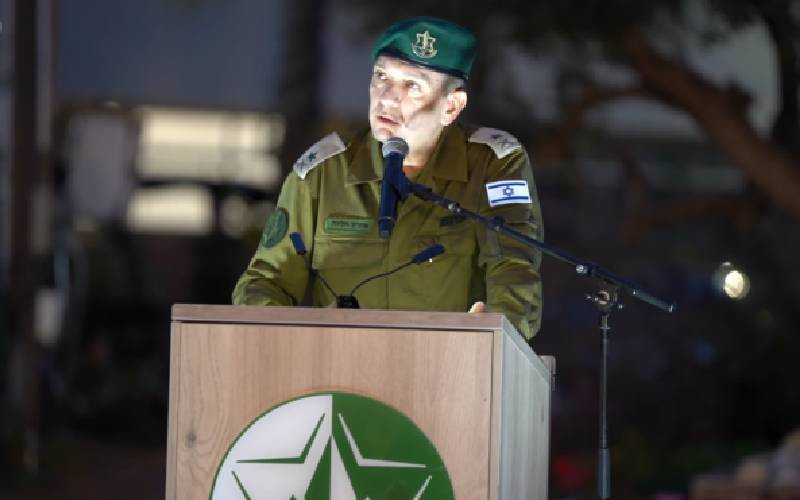×
The Standard e-Paper
Fearless, Trusted News

Israel's military intelligence chief has resigned after taking responsibility for failures leading to the Hamas attack on October 7, the military said on Monday, as Israel carried out more shelling in war-battered Gaza overnight.
General Aharon Haliva is the first top Israeli official to step down for failing to prevent the Hamas attack, which triggered the war in Gaza and brought the government and military under intense scrutiny in Israel.